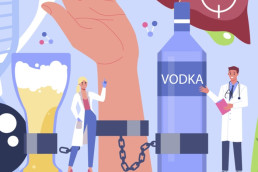Introduction
In today’s fast-paced and increasingly complex world, the issue of drug use among teenagers and young adults is a growing concern for many parents. With the rise of prescription drug misuse, the proliferation of new synthetic substances, and the ongoing challenges of traditional illicit drugs, it’s more important than ever for parents to be informed and vigilant. This article aims to shed light on the types of drugs that young people may encounter and offers guidance on how to approach this sensitive topic.
Understanding the Drug Landscape
The first step in protecting your children is understanding what substances are commonly used and the risks they pose.
Prescription Drugs: Misuse of prescription drugs like painkillers, sedatives, and stimulants is increasingly common among teens.
Illicit Drugs: Traditional substances such as marijuana, cocaine, ecstasy, and heroin continue to be prevalent.
Synthetic and Designer Drugs: Newer drugs, such as synthetic cannabinoids (spice) and synthetic stimulants (bath salts), are particularly dangerous due to their unpredictable effects.
Over-the-counter (OTC) Drugs: Abuse of OTC medications, like cough syrups and cold medicines, is often overlooked but can be harmful.
Recognizing the Signs of Drug Use
Being able to recognise the signs of drug use can help in intervening early.
Physical Signs: Changes in sleep patterns, weight loss or gain, and unexplained health issues can be indicators.
Behavioural Changes: Look for shifts in mood, loss of interest in activities, changes in social circles, and academic or behavioural issues at school.
Communication is Key
Open and honest communication is crucial in preventing and addressing drug use.
Start the Conversation Early: Discuss the dangers of drug use in an age-appropriate way, starting when children are young.
Create a Safe Space: Foster an environment where your children feel safe discussing difficult topics without fear of judgment or harsh punishment.
Prevention Strategies
Prevention is always better than cure when it comes to drug use.
Education: Educate yourself and your children about the risks and consequences of drug use.
Be Involved: Take an active interest in your child’s life, know their friends, and understand their challenges and pressures.
Set Clear Expectations and Consequences: Be clear about your expectations regarding drug use and the consequences of breaking these rules.
Seeking Help
If you suspect your child is using drugs, it’s important to seek help promptly.
Consult Professionals: Reach out to counsellors, therapists, or healthcare providers experienced in dealing with adolescent drug issues.
Support Groups: Consider support groups for both your child and your family.
Conclusion
Understanding the drug landscape, recognising the signs of drug use, maintaining open communication, implementing prevention strategies, and seeking help when needed are all crucial steps in ensuring the safety and well-being of your children. As a parent, your awareness, involvement, and support can make a significant difference in your child’s life choices and their ability to resist the pressures of drug use. Remember, tackling this issue is not just about preventing drug use; it’s about guiding your children towards a healthy, safe, and successful future.
May 16, 2023
I think I am drinking too much alcohol
I am a chronic alcoholic. Yes, I said it. It’s hard for me to admit this to myself and others but I think it is time…
December 19, 2023
National Alcohol Guidelines?
The UK government recommends that both men and women should not regularly drink more than 14 units per week to reduce…
Selected Articles:
May 16, 2023
I think I am drinking too much alcohol
I am a chronic alcoholic. Yes, I said it. It’s hard for me to admit this to myself and others but I think it is time…
May 16, 2023
Are Hangover Blackouts Normal?
Waking up with a fragmented memory or complete amnesia of events after a night of heavy drinking can be a disconcerting…




